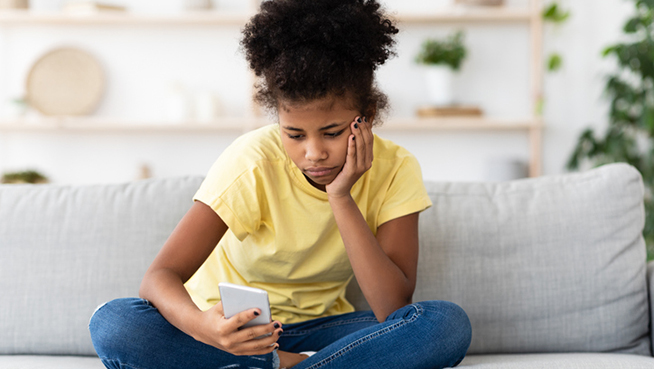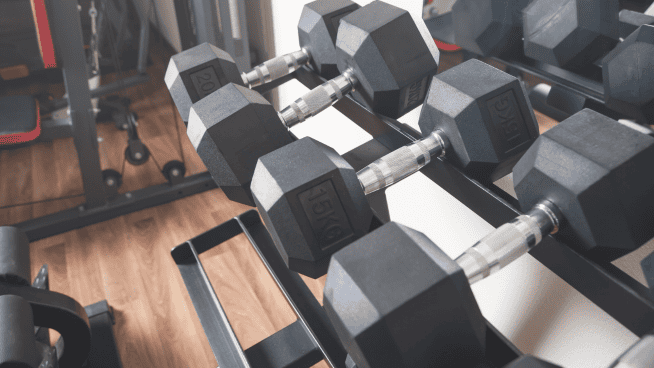Teen Girls and Instagram
How many times in your life have you looked in the mirror and wished you were thinner? That your knees weren’t so knobby? That your eyes were blue? The chances are that there has been a time in your life when you felt some form of self-hate. If you are a girl or woman, the chances are even greater.
I was teased about my buckteeth and chicken legs when I was a young girl. And was often called a boy. That was a long time ago though, so I didn’t have to worry about the input of social media.

Pressure To Be Perfect
But today, on top of the usual challenges of growing up, there is social media pressure for teens and young adults to be perfect. Celebrities and Influencers use professional photographers to enhance the ideal life presented on their feeds. And everyone who uses social media can add filters that adjust features and add makeup to get the “perfect” look. One quick scroll through Instagram and you’ll find your vision of perfection and soon be fed more of the same.
For example, according to the New York Post, Facebook’s own internal research has found that Instagram inundates teen girls who have anorexia and other eating disorders with photos and videos of other girls with eating disorder-related content.
Teen Girls Feel Worse About Themselves
Social media is hard on teens, especially, young women, and research has found that Instagram is the worst. About 22 million teens log onto Instagram in the U.S. each day. Many of which are girls and young women.
The Wall Street Journal reported that a message posted to Facebook’s internal message board in March 2020 stated that, “Thirty-two percent of teen girls said that when they felt bad about their bodies, Instagram made them feel worse.” Because of social media, many teenagers feel worse about themselves and believe that they are missing something in their lives.
Fear Of Missing Out
When a person sees everyone else doing fun and exciting things on social media it is easy for them to wonder why they live such a boring life. As it is called, FOMO is exacerbated by scrolling through the “perfect” lives of others. And the act of spending time on the screen actually takes away from time that could be spent living in the present.
Depression & Anxiety
The average person spends two and a half hours a day on social media. Youth spend between six and nine hours a day, scrolling through image upon image of the “perfect body” and the “perfect life.” This is not good. Research has found that the more social networks a young adult uses, the more likely he or she is to report depression and anxiety.
Not only can social media lead to depression and anxiety, but for many, it can lead to loneliness and body image obsession. According to the Facebook presentation, teens report wanting to spend less time on Instagram, but lack the self-control to do so. What steps can you take to reduce social media?
Ways To Reduce Time On Social Media.
Turn off notifications
Choose when you want to check social media. Do you really need to know what is happening in everyone else’s life every moment of the day? Be in charge of your life and view social media when you want to, not when posts are sent to you.
Limit yourself
Set a schedule for yourself. Maybe you only check your social media in the morning for thirty minutes and again at night for thirty more. Whatever works to reduce your time scrolling, give it a try. Some apps have built-in time limits that you can set and there are more apps to help if you have a hard time being disciplined
Delete apps
Try deleting apps that you don’t use very often. Or if you’re ready for real change, go cold-turkey, delete them all and see what happens.
Get a new hobby/activity
Having a hobby will keep you away from your phone and social media. When you are feeling antsy pick up a guitar, or draw, or read. Go for a bike ride or a run. Do something fun that has nothing to do with social media.
Touch base with friends and family
Instead of watching friends and family on social media, give them a text or call. Or even send a postcard. Really connect. They will love it as much as you do.
What May Happen If You Reduce Social Media
Feel Anxious (At First)
If you are used to scrolling away, you may feel antsy when you first reduce your social media time; your body and mind accustom to the constant draw of the feed. But give yourself a chance to breathe and see what happens
Less Stress
You may find that once you get past any anxious feelings, that you feel less stressed. You have nothing to live up to. Relax and just be you.
More Sleep
When you reduce time on social media you have more hours to sleep, especially if the time spent on social media was during the late hours of the night. And when you’re less worried about keeping up a “perfect life”, you may also find ease when your head hits the pillow
Creativity
Now that you have more time, and your mind is more clear, you may find that you want to create. You may have the urge to draw and write. Boredom is the road to creativity. Don’t fill the street with roadblocks.
Enjoy The Present Moment
Instead of living everyone else’s life. Say goodbye to social media and enjoy your present life. Look up from your phone and enjoy the people, and the life, around you.
Resources And Support
If you or someone you care about needs support check out the following resources:
SAMHSA’s National Helpline
SAMHSA’s National Helpline is a free, confidential, 24/7, 365-day-a-year treatment referral and information service (in English and Spanish) for individuals and families facing mental and/or substance use disorders.
Suicide Prevention Lifeline
The Lifeline provides 24/7, free and confidential support for people in distress, prevention and crisis resources for you or your loved ones, and best practices for professionals.
AACAP Resource Centers are aimed at helping families find the information they need. They empower consumers through patient education. Each AACAP Resource Center contains consumer-friendly definitions, answers to frequently asked questions, clinical resources, expert videos, and abstracts from the JAACAP, Scientific Proceedings and Facts for Families relevant to each disorder.
Parent’s Guide to Teen Depression
RECOMMENDED FOR YOU
MOST POPULAR
Teen Girls and Instagram
How many times in your life have you looked in the mirror and wished you were thinner? That your knees weren’t so knobby? That your eyes were blue? The chances are that there has been a time in your life when you felt some form of self-hate. If you are a girl or woman, the chances are even greater.
I was teased about my buckteeth and chicken legs when I was a young girl. And was often called a boy. That was a long time ago though, so I didn’t have to worry about the input of social media.

Pressure To Be Perfect
But today, on top of the usual challenges of growing up, there is social media pressure for teens and young adults to be perfect. Celebrities and Influencers use professional photographers to enhance the ideal life presented on their feeds. And everyone who uses social media can add filters that adjust features and add makeup to get the “perfect” look. One quick scroll through Instagram and you’ll find your vision of perfection and soon be fed more of the same.
For example, according to the New York Post, Facebook’s own internal research has found that Instagram inundates teen girls who have anorexia and other eating disorders with photos and videos of other girls with eating disorder-related content.
Teen Girls Feel Worse About Themselves
Social media is hard on teens, especially, young women, and research has found that Instagram is the worst. About 22 million teens log onto Instagram in the U.S. each day. Many of which are girls and young women.
The Wall Street Journal reported that a message posted to Facebook’s internal message board in March 2020 stated that, “Thirty-two percent of teen girls said that when they felt bad about their bodies, Instagram made them feel worse.” Because of social media, many teenagers feel worse about themselves and believe that they are missing something in their lives.
Fear Of Missing Out
When a person sees everyone else doing fun and exciting things on social media it is easy for them to wonder why they live such a boring life. As it is called, FOMO is exacerbated by scrolling through the “perfect” lives of others. And the act of spending time on the screen actually takes away from time that could be spent living in the present.
Depression & Anxiety
The average person spends two and a half hours a day on social media. Youth spend between six and nine hours a day, scrolling through image upon image of the “perfect body” and the “perfect life.” This is not good. Research has found that the more social networks a young adult uses, the more likely he or she is to report depression and anxiety.
Not only can social media lead to depression and anxiety, but for many, it can lead to loneliness and body image obsession. According to the Facebook presentation, teens report wanting to spend less time on Instagram, but lack the self-control to do so. What steps can you take to reduce social media?
Ways To Reduce Time On Social Media.
Turn off notifications
Choose when you want to check social media. Do you really need to know what is happening in everyone else’s life every moment of the day? Be in charge of your life and view social media when you want to, not when posts are sent to you.
Limit yourself
Set a schedule for yourself. Maybe you only check your social media in the morning for thirty minutes and again at night for thirty more. Whatever works to reduce your time scrolling, give it a try. Some apps have built-in time limits that you can set and there are more apps to help if you have a hard time being disciplined
Delete apps
Try deleting apps that you don’t use very often. Or if you’re ready for real change, go cold-turkey, delete them all and see what happens.
Get a new hobby/activity
Having a hobby will keep you away from your phone and social media. When you are feeling antsy pick up a guitar, or draw, or read. Go for a bike ride or a run. Do something fun that has nothing to do with social media.
Touch base with friends and family
Instead of watching friends and family on social media, give them a text or call. Or even send a postcard. Really connect. They will love it as much as you do.
What May Happen If You Reduce Social Media
Feel Anxious (At First)
If you are used to scrolling away, you may feel antsy when you first reduce your social media time; your body and mind accustom to the constant draw of the feed. But give yourself a chance to breathe and see what happens
Less Stress
You may find that once you get past any anxious feelings, that you feel less stressed. You have nothing to live up to. Relax and just be you.
More Sleep
When you reduce time on social media you have more hours to sleep, especially if the time spent on social media was during the late hours of the night. And when you’re less worried about keeping up a “perfect life”, you may also find ease when your head hits the pillow
Creativity
Now that you have more time, and your mind is more clear, you may find that you want to create. You may have the urge to draw and write. Boredom is the road to creativity. Don’t fill the street with roadblocks.
Enjoy The Present Moment
Instead of living everyone else’s life. Say goodbye to social media and enjoy your present life. Look up from your phone and enjoy the people, and the life, around you.
Resources And Support
If you or someone you care about needs support check out the following resources:
SAMHSA’s National Helpline
SAMHSA’s National Helpline is a free, confidential, 24/7, 365-day-a-year treatment referral and information service (in English and Spanish) for individuals and families facing mental and/or substance use disorders.
Suicide Prevention Lifeline
The Lifeline provides 24/7, free and confidential support for people in distress, prevention and crisis resources for you or your loved ones, and best practices for professionals.
AACAP Resource Centers are aimed at helping families find the information they need. They empower consumers through patient education. Each AACAP Resource Center contains consumer-friendly definitions, answers to frequently asked questions, clinical resources, expert videos, and abstracts from the JAACAP, Scientific Proceedings and Facts for Families relevant to each disorder.
Parent’s Guide to Teen Depression












